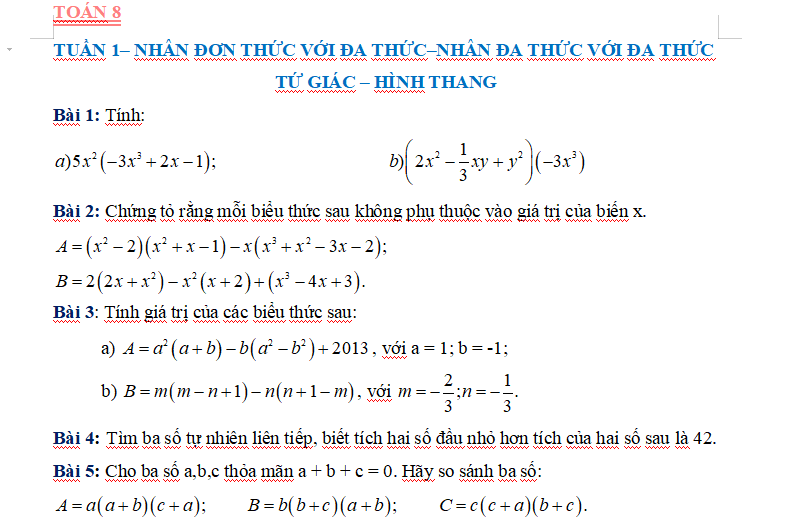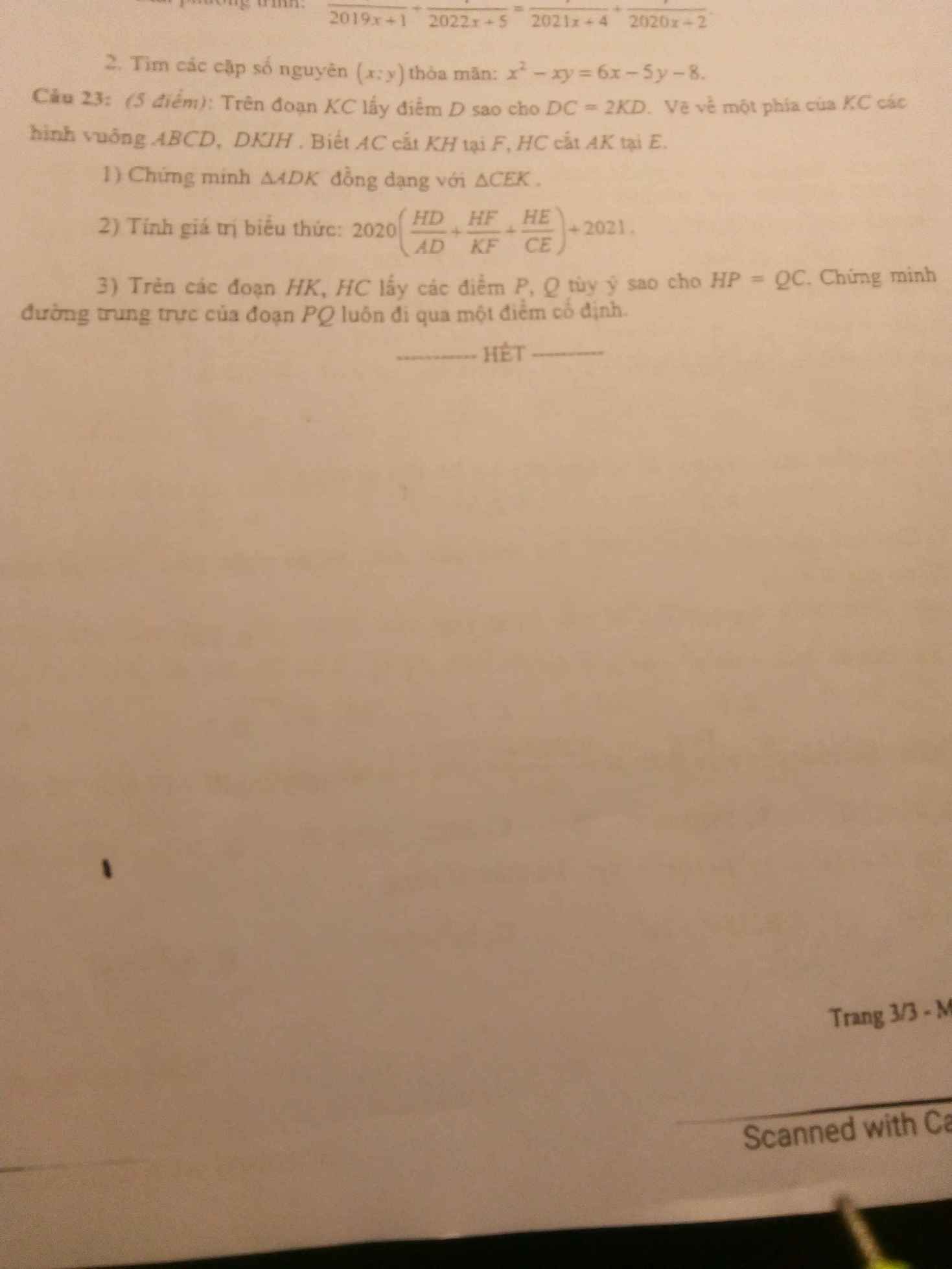Bài 1:
a. 5x2(-3x3 + 2x - 1)
= -15x5 + 10x3 - 5x2
b. \(\left(2x^2-\dfrac{1}{3}xy+y^2\right)\left(-3x^3\right)\)
= \(-6x^5+x^4y-3x^3y^2\)
\(4,\)
Gọi 3 số tự nhiên liên tiếp là \(a-1;a;a+1\)\((a \in N*)\)
Theo đề, ta có:
\(a\left(a+1\right)-a\left(a-1\right)=42\\ \Leftrightarrow a^2+a-a^2+a=42\\ \Leftrightarrow2a=42\Leftrightarrow a=21\)
Vậy 3 số đó là 20;21;22
\(5,\\ a+b+c=0\Leftrightarrow\left\{{}\begin{matrix}a+b=-c\\b+c=-a\\a+c=-b\end{matrix}\right.\\ A=a\left(a+b\right)\left(a+c\right)=a\left(-c\right)\left(-b\right)=abc\\ B=b\left(b+c\right)\left(a+b\right)=b\left(-a\right)\left(-c\right)=abc\\ C=c\left(c+a\right)\left(b+c\right)=c\left(-b\right)\left(-a\right)=abc\\ \Leftrightarrow A=B=C\)
Bài 2:
$A=(x^4+x^3-x^2-2x^2-2x+2)-(x^4+x^3-3x^2-2x)$
$=(x^4+x^3-3x^2-2x+2)-(x^4+x^3-3x^2-2x)=2$
Vậy $A$ không phụ thuộc vào giá trị biến
$B=(4x+2x^2)-(x^3+2x^2)+(x^3-4x+3)$
$=4x+2x^2-x^3-2x^2+x^3-4x+3$
$=(-x^3+x^3)+(2x^2-2x^2)+(4x-4x)+3=3$
Vậy $B$ không phụ thuộc vào giá trị biến
Bài 1:
a. 5x2(-3x3 + 2x - 1)
= -15x5 + 10x3 - 5x2
b.
Bài 3:
a. Vì $a=1; b=-1\Rightarrow a+b=0$
$A=a^2(a+b)-b(a-b)(a+b)+2013$
$=a^2.0-b(a-b).0+2013=2013$
b. $m=\frac{-2}{3}; n=\frac{-1}{3}\Rightarrow m+n+1=0$
$B=m^2-mn+m-n^2-n+mn$
$=m^2-n^2+(m-n)=(m-n)(m+n)+(m-n)=(m-n)(m+n+1)$
$=(m-n).0=0$
Bài 4:
Gọi 3 số tự nhiên liên tiếp là $a, a+1, a+2$ với $a\in\mathbb{N}$
Theo bài ra ta có:
$(a+1)(a+2)-a(a+1)=42$
$\Leftrightarrow (a+1)(a+2-a)=42$
$\Leftrightarrow (a+1).2=42$
$\Leftrightarrow a+1=21\Leftrightarrow a=20$
Vậy 3 số tự nhiên cần tìm làm $20,21,22$
Bài 5:
Vì $a+b+c=0$ nên $a+b=-c; b+c=-a; c+a=-b$. Do đó:
$A=a(a+b)(c+a)=a(-c)(-b)=abc$
$B=b(b+c)(a+b)=b(-a)(-c)=abc$
$C=c(c+a)(b+c)=c(-b)(-a)=abc$
Do đó $A=B=C$
bài 2
B=2(2x+x^2)-x^2(x+2)+(x^3-4x+3)
B=4x+2x^2-x^3-2x^2+x^3-4x+3
B=+3




















